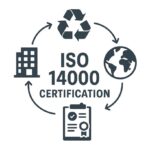Introduction
The world is facing a development crisis due to the rapid increase in population and its need for resources. The volume of waste created and its subsequent disposal is an increasingly pressing issue. Waste management is essential to any development strategy and is especially relevant in developing countries. This article will explore the waste management concept in developing countries, outlining the problems and challenges of inadequate waste management and the potential solutions available.
Waste Management in Developing Countries
Developing countries often face inadequate infrastructure and resources, resulting in poor waste management practices. This contributes to environmental pollution, health concerns, and economic losses. Many developing countries also face limited budgets and resources, further complicating managing waste.
Waste Management in Developing Countries
Inadequate waste collection is one of the significant issues facing developing countries. Poor collection and disposal of waste results in it being left on the streets, which can lead to health and environmental hazards. Poor waste collection can also lead to the inefficient use of resources, as uncollected waste can be challenging to recover and reuse. Another issue is ways to mix and lack of waste separation
Poor Waste Disposal
Poor waste disposal is another challenge faced by many developing countries. Without proper disposal systems, waste is often disposed of in landfills or open dumps, contaminating water and soil. This can lead to health hazards and environmental degradation. Uncontrolled waste burning, a common practice in many developing countries, can lead to air pollution and public health concerns.
Lack of Recycling
Many developing countries lack the resources and infrastructure for effective waste recycling. Without proper recycling facilities, much of the waste produced is discarded. This leads to inefficient use of resources and contributes to environmental pollution.
Lack of Education
A lack of education about waste management is a significant problem in many developing countries. Without understanding the importance of proper waste management, people will not be motivated to adopt more sustainable practices.
Potential Solutions
To effectively address the waste management challenges developing countries face, a range of potential solutions must be explored.
Improved Waste Collection
Improved waste collection is essential to ensure that waste is disposed of safely and efficiently. This can be achieved by introducing waste collection services, which should be tailored to the specific needs of the local population. An integrated waste management system should also be implemented by looking at the entire waste hierarchy
Improved Waste Disposal
Improved waste disposal is necessary to reduce the health and environmental hazards caused by poor disposal practices. This can be achieved by introducing waste treatment and disposal facilities, such as sanitary landfills, designed to dispose of waste safely in addition to waste composting and biograsification as well as waste-to-energy technologies.
Increased Recycling
Recycling is an essential part of any waste management strategy, as it allows for the reuse of resources and reduces the volume of waste that needs to be disposed of. Developing countries should aim to increase their recycling rates by introducing recycling services, such as kerbside collection, and developing adequate recycling infrastructure.
Data on the Status of Waste Management in Developing Countries
The World Bank has published two essential reports on the global waste status, focusing on waste management and developing countries. The first report is “What a Waste 1.0”. And the second report is “What a Waste 2.0”. You also can visit the DEISO Data Bank for waste management in developing countries.
Conclusion
The World Bank has published two essential reports on the global waste status, focusing on waste management and developing countries. The first report is “What a Waste 1.0”. And the second report is “What a Waste 2.0”. Ya
Waste management is essential to any development strategy and is especially relevant in developing countries. Poor waste management can lead to health and environmental hazards and economic losses. Improving the waste collection, disposal, recycling, and education can help to address the waste management challenges faced by developing countries and create a more sustainable future.
ou also can visit the DEISO Data Bank for waste management in developing countries.
How Can DEISO Help your Organization in Waste Management for Developing Countries?
Visit our page on waste management services for developing countries, ranging from waste analyses and forecasting to developing integrated waste management systems.
Recommended publications on waste management in developing countries.
- An integrated approach to establish e-waste management systems for developing countries
- Development of management systems for sustainable municipal solid waste in developing countries: a systematic life cycle thinking approach
- Environmental impacts and benefits of state-of-the-art technologies for E-waste management
- Differences of methods to estimate generation of waste electrical and electronic equipment for developing countries: Jordan as a case study
- Life Cycle Assessment of Integrated E-waste Management Systems for Developing Countries: Assessment in Jordan
- Introducing an integrated municipal solid waste management system: Assessment in Jordan










